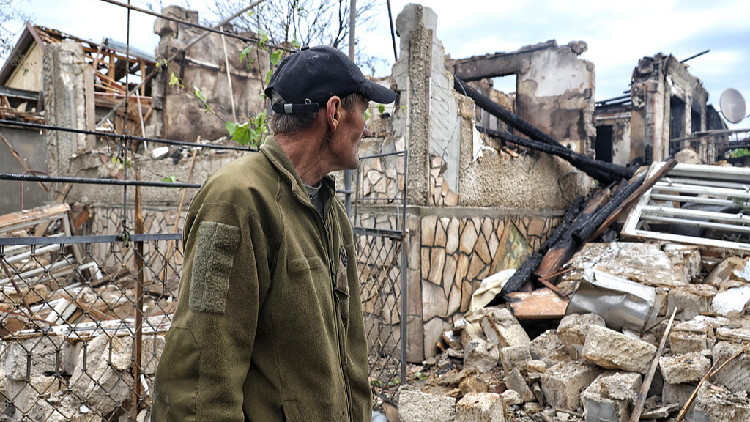China Urges Russia and Ukraine to Sustain Progress in Peace Negotiations
Chinese envoy urges Russia and Ukraine to sustain progress in peace negotiations amid ongoing conflict.

A top Chinese envoy issued a sharp warning on Friday, stating that the continued influx of advanced weaponry into the Russia-Ukraine war zone is only serving to intensify and prolong the conflict. Geng Shuang, China’s deputy permanent representative to the United Nations, emphasized that rather than paving the way for a resolution, the escalation of military hardware is undermining ongoing diplomatic efforts between Russia and Ukraine.
“With direct negotiations now underway, we see an increasing number of weapons on the battlefield—many with greater lethality and destructive power. This will only escalate confrontation and prolong the fighting,” Geng declared during a session at the UN Security Council. He added that this trend is not conducive to achieving a ceasefire or ending the war and directly contradicts the hopes of the international community for a peaceful resolution.
Geng called on all countries to actively support peace talks and create the necessary conditions for diplomacy, urging, “We also call on the parties to the conflict to work collectively toward de-escalation and a political solution, rather than persisting with military confrontations and attacks.” He underscored that a return to negotiation is the only effective pathway towards peace.
The Chinese envoy also pushed back firmly against recent criticism from the United States, describing U.S. remarks as “misinformation and smears” aimed at China. “This is utterly unacceptable,” he stated, asserting that U.S. allegations regarding China’s role in the conflict are unfounded and solely serve political interests instead of fostering any meaningful solutions.
Reiterating China’s position, Geng insisted that China has not provided lethal weapons to either side in the war and continues to strictly manage exports of items with potential dual use. He condemned what he called “groundless accusation and political manipulation,” calling for an end to such tactics and greater international cooperation to facilitate peace.
Geng further asserted that the United States bears significant responsibility for both the outbreak and continuation of the conflict, emphasizing that Washington should focus on advancing diplomatic efforts rather than engaging in what he described as a “boring blame game.”
China’s stance on Ukraine, he reiterated, has remained consistent and clear since the onset of the crisis: advocating for dialogue, negotiation, and a political solution. The Chinese government, according to Geng, maintains communication with both Moscow and Kyiv while working within the broader international community to promote peace initiatives.
Echoing calls from various nations, China expressed readiness to expand its constructive role alongside countries in the Global South to help build genuine prospects for peace. Geng welcomed recent diplomatic breakthroughs between Russia and Ukraine, including direct talks and prisoner exchanges, and encouraged both sides to sustain this positive momentum through continued dialogue and compromise.
He concluded by urging all parties in the conflict to show political will, uphold international humanitarian law, and avoid targeting civilians and essential infrastructure. “Ultimately, addressing the root causes of the crisis through negotiation is the only way to achieve a lasting political settlement,” he said, highlighting China’s unwavering commitment to support peace and protect civilian lives amidst ongoing hostilities.




